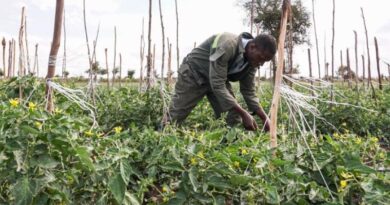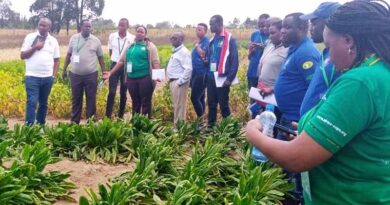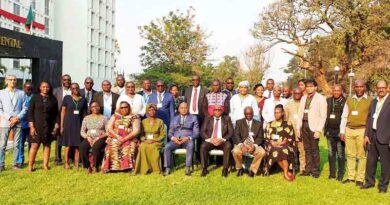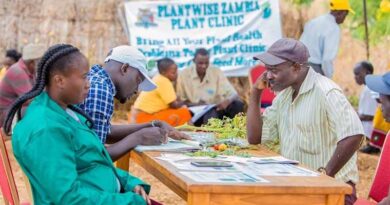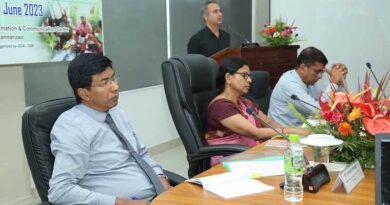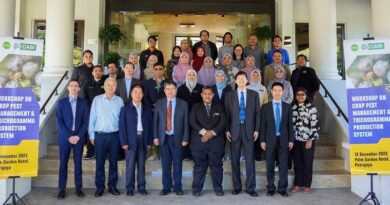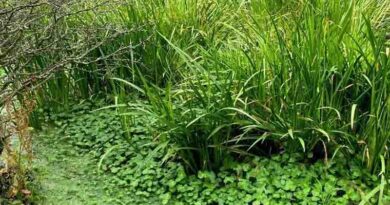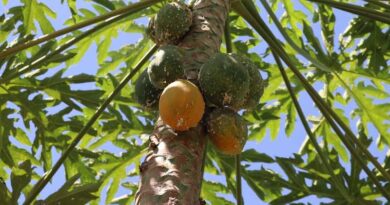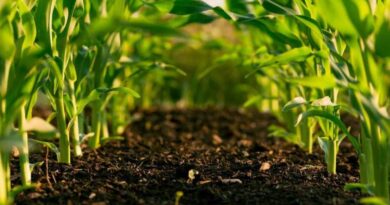CABI shares expertise at 4th International Phytosanitary Conference 2023 held in Kenya
02 October 2023, Kenya: CABI has shared its expertise in helping countries achieve robust Sanitary and Phytosanitary (SPS) systems to sustainably improve livelihoods and strengthen food security at the 4th International Phytosanitary Conference 2023 held in Kenya.
Dr Morris Akiri, Senior Regional Director, Africa, attended the event which was hosted by the Kenya Plant Health Inspectorate Service (KEPHIS) at its headquarters in Nairobi.
Dr Akiri gave opening remarks at the Conference – themed “Enhancing Phytosanitary Systems for Trade Facilitation, Climate Smart Agriculture and Sustainable Livelihoods” – and highlighted how CABI is working with its 17 Member Countries in Africa to enhance SPS measures along the food value chain.
Support for SPS and trade in Africa
CABI, through various development partners such as the Standards and Trade Development Facility (STDF), United States Department of Agriculture (USDA), EU, Trademark Africa, Land O Lakes Venture 37, and the Food and Agriculture Organization of the United Nations (FAO), have continued to support SPS and trade in Africa. Multiple initiatives continue to empower smallholder farmers to meet SPS standards so that they can protect their produce from contaminants – such as chemical residues, diseases, and pests – and strengthen consumer acceptability.
At a regional level, CABI has undertaken SPS capacity assessments in the East African Community (EAC) and identified interventions for investment to facilitate safe trade (LOL Venture 37). This includes support to the African Union Inter-African Phytosanitary Council (AU IAPSC) to implement the Africa Union Plant Health Strategy and the Adoption of Electronic Phytosanitary certificates in Africa.
Dr Akiri said, “We have also supported pest risk analysis for import control and market access for Regional Economic Communities, the Southern African Development Community (SADC) and Economic Community of West African States (ECOWAS) with the support of STDF, CABI is currently implementing a three-year initiative that will improve market access for fruits and other horticultural products by managing invasive scale insect pests in Burundi, Kenya and Uganda.”
The Hon. Kello Harsama Permanent Secretary, State Department for Crop Development, Ministry of Agriculture and Livestock Development, speaking at the Conference outlined Kenya’s Agricultural Sector Transformation and Growth Strategy (ASTGS) 2019-2029. He explained how phytosanitary and plant health components are at the centre of these blueprints as Kenya strives to ensure that food is available, affordable, and safe for consumption.
Professor Theophilus M. Mutui, Managing Director of KEPHIS, emphasized that “the implementation of phytosanitary measures aimed at mitigating against the challenge of plant pests is key to Kenya’s economy.”
Digital tools as enablers
CABI’s Dr Ivan Rwomushana, Senior Scientist, Invasive Species Management in his keynote address at the event highlighted the range of digital tools within the PlantwisePlus Toolkit that can be used for horizon scanning and insight reporting when monitoring and managing phytosanitary risks.
Dr Rwomushana spoke about how tools such as the CABI BioProtection Portal, the Horizon Scanning Tool, the Pest Risk Analysis Tool, the PlantwisePlus Knowledge Bank, courses within the CABI Academy, and the Fertilizer Optimizer App can support countries to achieve robust Sanitary and Phytosanitary (SPS) systems.
CABI was one of the organisations that sponsored the 4th International Phytosanitary Conference.
(For Latest Agriculture News & Updates, follow Krishak Jagat on Google News)


